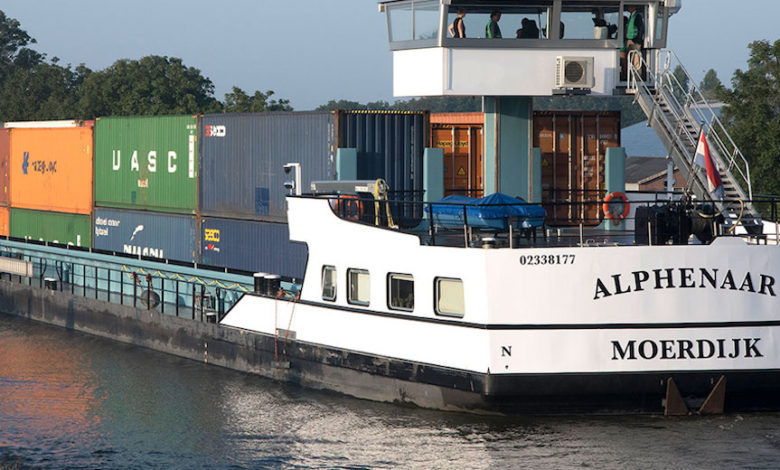Heineken zeros in on emissions-free shipping

Zero Emission Services (ZES) commenced yesterday with the Alphenaar, the first Dutch inland vessel to use interchangeable energy containers for propulsion. The Alphenaar sails between Alphen aan den Rijn and Moerdijk transporting beer for Heineken, ZES’s first end customer.
The energy containers – ZESpacks – are standard 20ft containers filled with batteries, which are charged with green electricity. The first two ZESpacks are loaded and exchanged at the first charging station at the CCT terminal in Alphen aan den Rijn. ZES’s ambition is to scale up in the short term and aims to realise 30 zero-emission shipping routes by 2030. The company was founded last year by ENGIE, ING, Wärtsilä and the Port of Rotterdam Authority with the support of the Ministry of Infrastructure and Water Management.
Within the transport sector, inland shipping makes up 5% of CO2 emissions in the Netherlands. In addition, 11% of the total Dutch NOx emissions are caused by inland shipping.
“The energy concept that ZES is launching on the market contributes directly to the reduction of emissions by saving around 1,000 tonnes of CO2 and seven tonnes of NOx per vessel per year. In addition, vessels sailing with ZES do not produce particulate matter and noise,” said Willem Dedden, CEO of ZES.

This bit of political grandstanding from Heineken is a joke.
No matter what you think of their product (Belgian beer is always better!), the biggest improvement to Heineken’s carbon footprint would be if no beer were to be transported all the way around the globe AT ALL. This is a product which can be produced locally in every location and the difference in taste is usually not that great. To send thousands of container loads of Heineken across the Atlantic (and some of it to come back again for the US Forces in Europe!) is totally unnecessary.
So you want tens of millions of small inefficient breweries all over the world then.
What were you saying about “political grandstanding”, “Enthusiastic and motivated big-ticket B2B marketing director.”